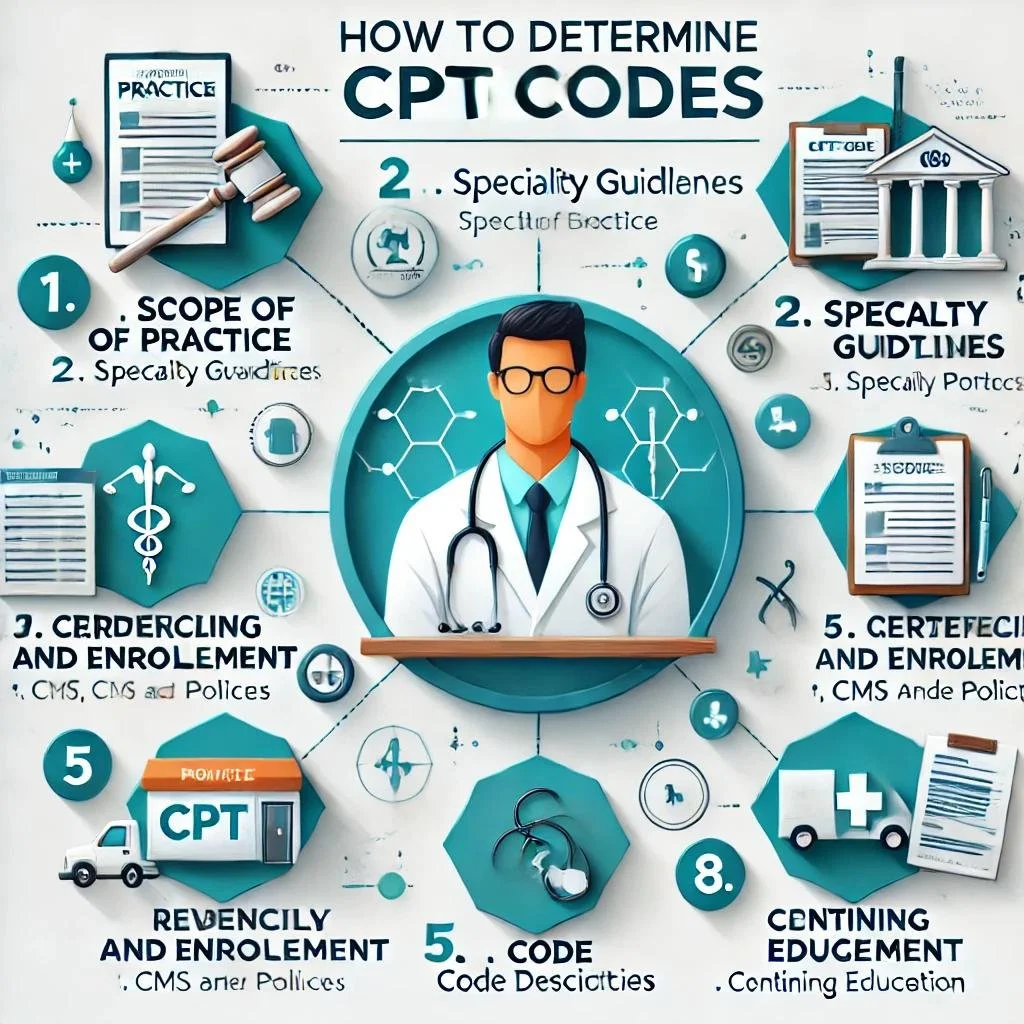How do I know what CPT codes I am able to bill?
Understanding which CPT (Current Procedural Terminology) codes you can bill depends on several factors related to your practice, specialty, and services provided. Here's how to determine this:
1. Scope of Practice
Check your state’s regulations and the scope of practice for your profession. Some procedures or services may only be billable if they are within your professional licensure.
For advanced practice providers (e.g., nurse practitioners, physician assistants), verify whether specific codes require physician supervision.
2. Specialty Guidelines
Review guidelines from your medical specialty board or professional association. These organizations often provide resources or training specific to the services you provide.
3. Insurance Contracts
Review contracts with payers (e.g., Medicare, Medicaid, private insurers). These contracts specify which services are covered and any restrictions on billing.
Check payer-specific billing guidelines, as they may not cover every CPT code or may require prior authorization.
4. Credentialing and Enrollment
Ensure you are credentialed and enrolled with the payer for the codes you intend to bill. For instance, some payers might not allow a provider to bill for specific codes based on their provider type.
5. CMS and Payer Policies
For Medicare and Medicaid, consult the CMS guidelines, including the National Coverage Determinations (NCDs) and Local Coverage Determinations (LCDs).
Review the Correct Coding Initiative (CCI) edits to avoid billing incompatible codes together.
6. Code Descriptions and Documentation Requirements
Familiarize yourself with the AMA CPT Codebook, which includes code descriptions, definitions, and usage guidelines.
Ensure your documentation supports the codes being billed, as payers may request records during audits.
7. Revenue Cycle Management
Collaborate with your billing department or a certified medical coder to ensure you are selecting appropriate codes and modifiers.
8. Continuing Education
Attend workshops, webinars, or training sessions on coding updates. CPT codes are updated annually, so staying informed is crucial.
This Q&A does not constitute legal, accounting, or tax advice and
does not address state or local law.
